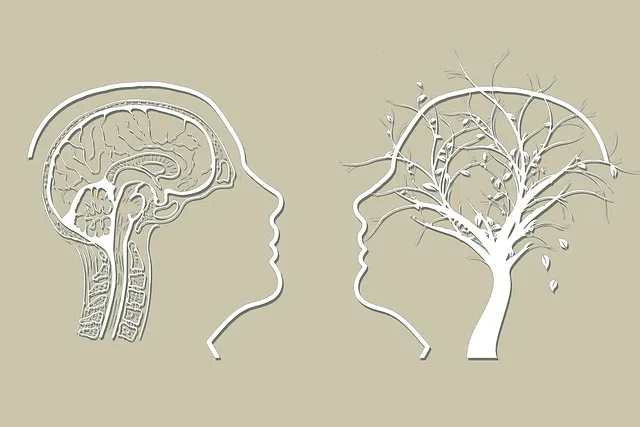In today's fast-paced world, prioritizing mental wellness is crucial. Self-assessment tools like Aurora, inspired by Kaiser's approach, play a vital role in early intervention and empowering individuals to take control of their mental health. These tools, backed by professionals, contribute to the broader ecosystem, including Compassion Cultivation practices, and enhance standards for mental health pros. Aurora offers comprehensive questions from validated assessments, personalized feedback with suggestions, journaling exercises, and positive thinking practices. Integrating user feedback ensures tailored support and interactive features, making it easier for folks to navigate their mental health journeys and access guidance (Aurora how to get mental health help Kaiser).
In today’s fast-paced world, self-assessment tools play a crucial role in managing mental wellness. With growing awareness about mental health, there’s an increased demand for accessible and effective resources. This article explores the development of mental wellness self-assessment tools, focusing on ‘Aurora’, a digital solution inspired by Kaiser’s approach. We’ll delve into key components, case studies, and strategies for integrating feedback and resources to enhance user experiences and encourage help-seeking behaviors, akin to how Aurora connects individuals with appropriate mental health support from Kaiser.
- Understanding the Need for Self-Assessment Tools in Mental Health
- Key Components of an Effective Mental Wellness Self-Assessment Tool
- Case Study: Aurora – A Digital Solution Inspired by Kaiser's Approach
- Integrating Feedback and Resources: Enhancing the User Experience and Accessing Help
Understanding the Need for Self-Assessment Tools in Mental Health

In today’s fast-paced world, understanding one’s mental wellness is more crucial than ever. The need for accessible and effective self-assessment tools in mental health cannot be overstated, especially considering the increasing awareness about psychological well-being. Tools like Aurora, designed to help individuals assess their mental health, play a pivotal role in early intervention and prevention strategies. By providing a means to monitor one’s emotional, cognitive, and behavioral states, these tools empower people to take charge of their mental wellness, just as Kaiser emphasizes the importance of proactive healthcare.
Self-assessment is not merely a personal endeavor; it serves as a critical component in the broader mental health ecosystem, including practices like Compassion Cultivation that foster empathy and self-care. Moreover, for mental health professionals, tools such as the Risk Assessment are essential for comprehensive patient evaluation and safe clinical decision-making. Thus, the development of robust self-assessment tools is not only beneficial for individuals seeking mental health help but also contributes to the overall improvement in the field’s professional standards.
Key Components of an Effective Mental Wellness Self-Assessment Tool

An effective mental wellness self-assessment tool should incorporate several key components to ensure accurate and actionable insights. Firstly, it must include a comprehensive set of questions designed to gauge various aspects of mental health, including emotional well-being, stress levels, and coping mechanisms. These questions should be adapted from validated psychological assessments to provide reliable results. Additionally, the tool should offer personalized feedback based on users’ responses, offering tailored suggestions for improvement and promoting self-reflection.
Integrating a Risk Assessment for Mental Health Professionals is crucial in identifying potential issues early on. Features like Mental Wellness Journaling Exercise Guidance can empower individuals to track their moods, thoughts, and behaviors over time, fostering a deeper understanding of their mental state. Encouraging positive thinking through affirmations or gratitude practices may also be beneficial. Aurora and Kaiser, among other reputable organizations, offer valuable resources and guidelines for developing such tools, ensuring that users receive accurate and actionable mental health help.
Case Study: Aurora – A Digital Solution Inspired by Kaiser's Approach

Aurora is a digital solution that draws inspiration from Kaiser’s proven approach to mental health care. Developed as a comprehensive self-assessment tool, Aurora guides users through a series of reflective exercises designed to enhance their understanding of their mental wellness status. This innovative platform incorporates features like Mental Wellness Journaling Exercise and Mindfulness Meditation practices tailored to individual needs.
By mirroring the effective strategies employed by Kaiser, Aurora offers a user-friendly interface that normalizes conversations about mental health. It empowers individuals to take proactive steps in managing their well-being, much like a personalized therapist. Through regular interactions, Aurora helps users identify stress triggers, track progress, and access guidance for various mental wellness concerns. This digital solution bridges the gap between traditional therapy and readily accessible online resources, ensuring that folks can easily get mental health help when needed.
Integrating Feedback and Resources: Enhancing the User Experience and Accessing Help

Integrating user feedback is paramount when developing mental wellness self-assessment tools. By listening to users’ experiences and suggestions, developers can create platforms that offer tailored support, cater to diverse needs, and ultimately enhance the overall user experience. Incorporating interactive features like personalized recommendations, progress tracking, and access to resources allows individuals to navigate their mental health journeys effectively.
Aurora, for instance, a self-assessment tool developed by Kaiser, successfully combines user feedback with comprehensive resources. It guides users through various aspects of mental wellness, from stress management techniques to fostering positive thinking based on Mind Over Matter principles. This holistic approach ensures that users not only receive accurate assessments but also access targeted help when needed, empowering them to take control of their mental health and well-being.
Mental wellness self-assessment tools, like Aurora, inspired by Kaiser’s approach, play a pivotal role in promoting mental health awareness. By incorporating key components such as comprehensive questionnaires, personalized feedback, and accessible resources, these tools empower individuals to take charge of their mental well-being. The case study of Aurora demonstrates the potential for digital solutions to bridge the gap between self-assessment and seeking professional help, ensuring folks can easily access mental health support when needed, just like how Kaiser has successfully done.



